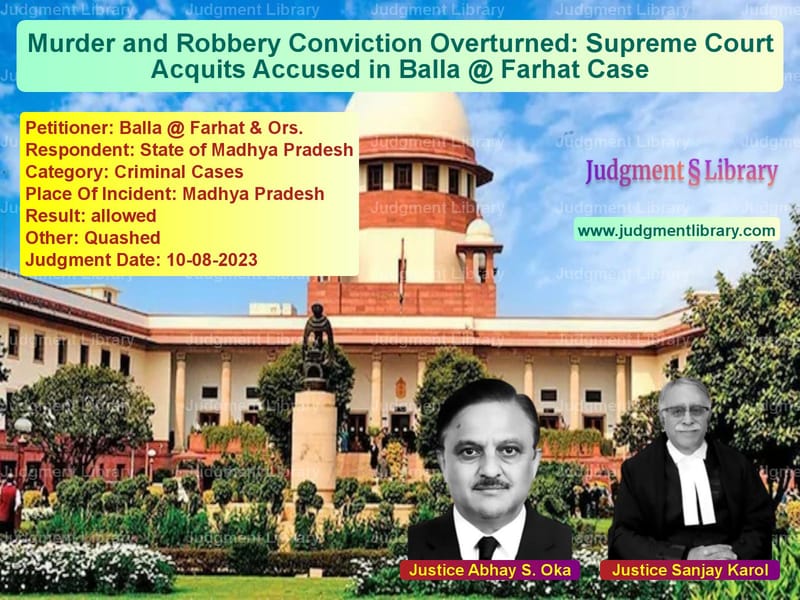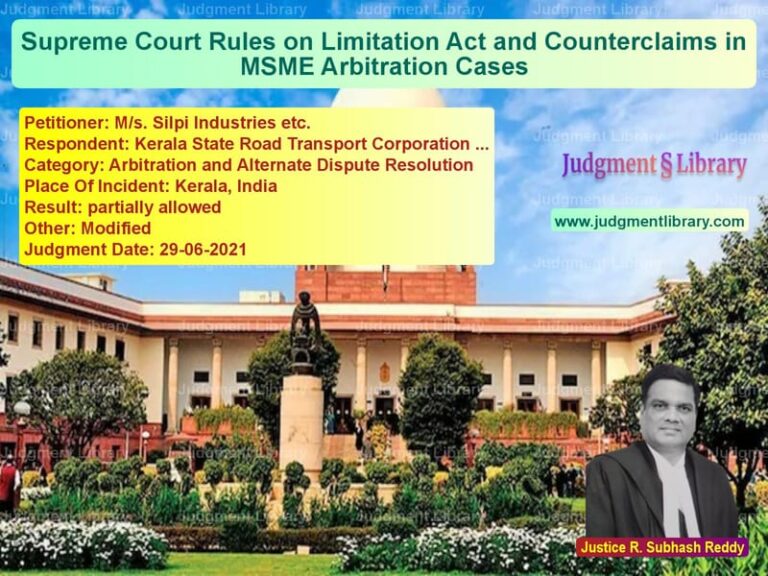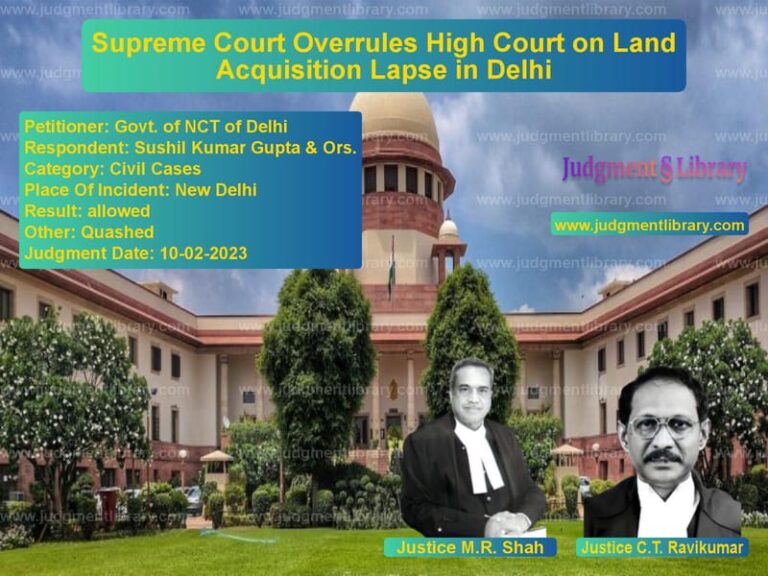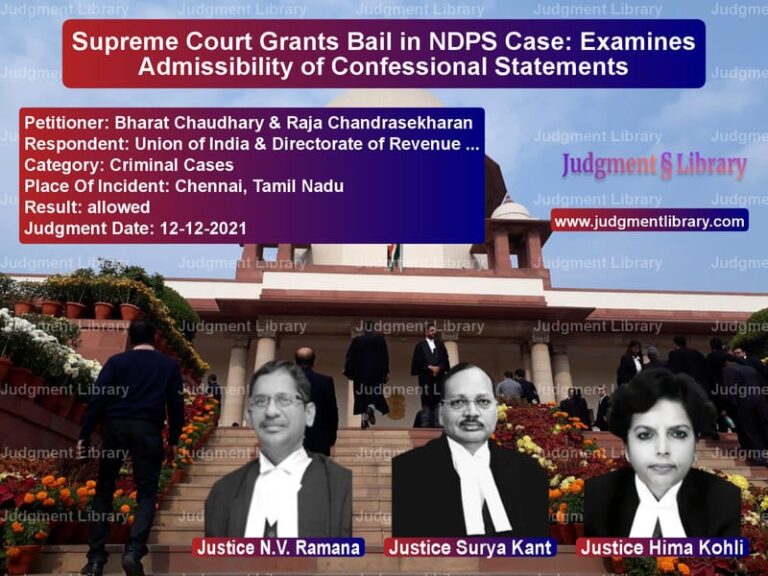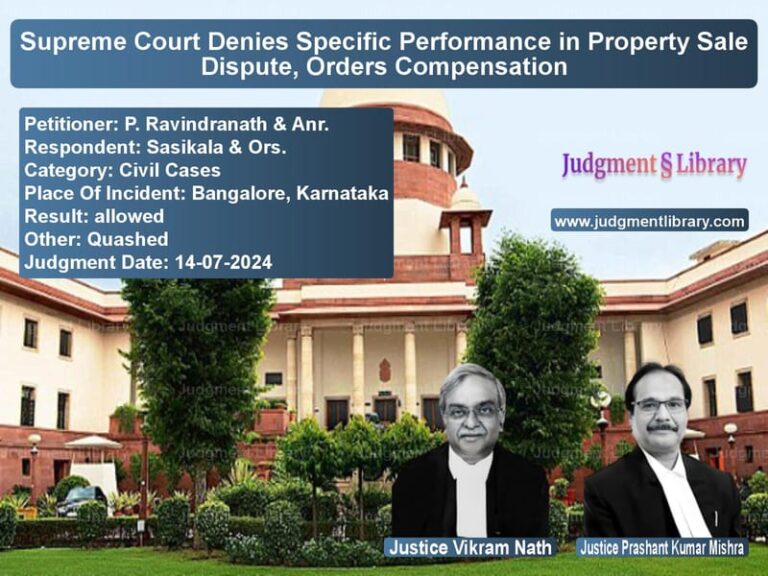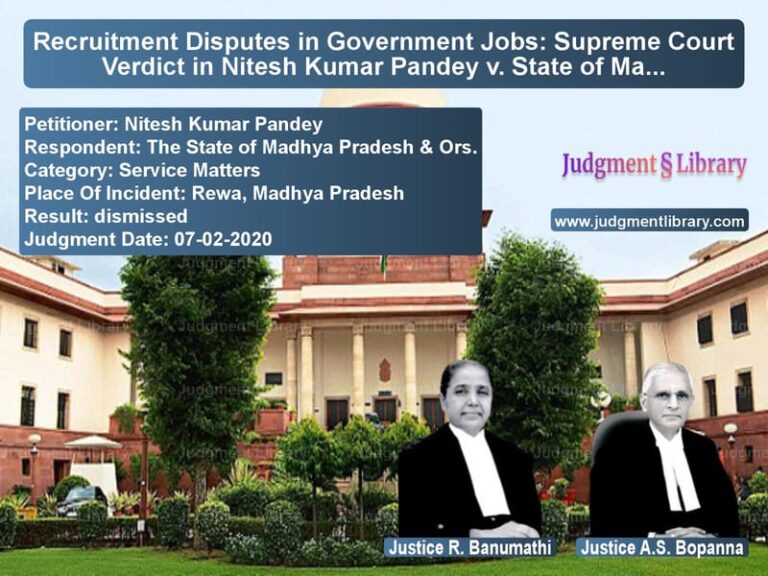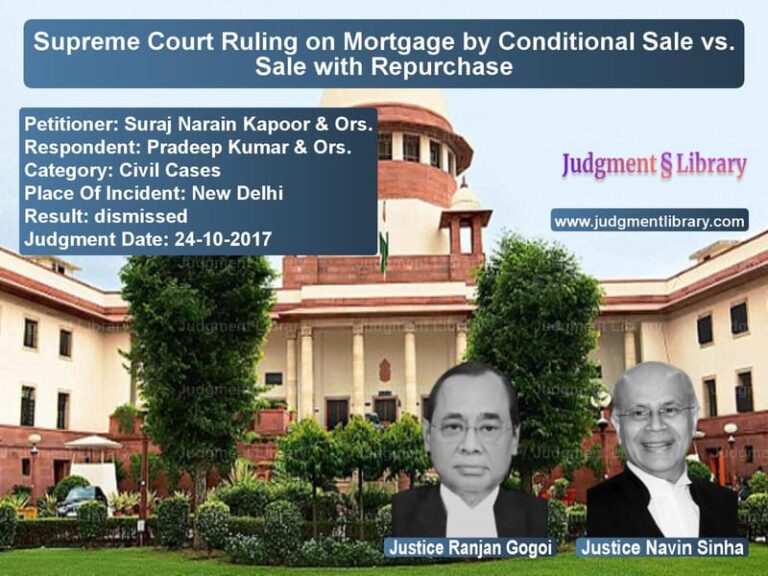Murder and Robbery Conviction Overturned: Supreme Court Acquits Accused in Balla @ Farhat Case
The Supreme Court of India recently delivered a landmark judgment in Balla @ Farhat vs. State of Madhya Pradesh, acquitting the accused of robbery and conspiracy due to lack of evidence. The judgment, delivered by Abhay S. Oka and Sanjay Karol, emphasized the fundamental principle of criminal law that conviction must be based on clear, credible, and reliable evidence.
The case revolved around an alleged armed robbery of a truck transporting goods and cash, where the prosecution accused multiple individuals, including Balla @ Farhat, of conspiring to commit the crime. However, due to inconsistencies in witness statements and lack of conclusive evidence, the Supreme Court overturned the convictions.
Background of the Case
The case stemmed from an alleged robbery that took place on November 26, 2001, in Madhya Pradesh. The prosecution claimed that the accused had plotted to rob a truck loaded with goods and cash en route to Indore. The truck was intercepted by criminals who pretended it was involved in an accident and then took control of it. They looted currency worth ₹2,00,000 and silver coins before fleeing.
Chronology of Events
- November 26, 2001: Truck carrying goods and cash is allegedly hijacked.
- November 27, 2001: The truck driver and staff report the incident.
- December 2001: Police investigate and arrest multiple accused, including Balla @ Farhat.
- 2005: Trial court convicts the accused under Sections 120B, 395, and 397 of IPC.
- October 22, 2010: Madhya Pradesh High Court upholds the conviction but modifies the charges.
- August 10, 2023: Supreme Court overturns the conviction and acquits the accused.
Petitioner’s Arguments
The appellant, represented by Senior Counsel, contended:
- The prosecution failed to establish a clear chain of evidence linking the accused to the crime.
- Witness testimonies were inconsistent, and some witnesses turned hostile.
- The alleged recovery of cash from the accused was unsupported by reliable witness statements.
- The conviction under Section 120B (criminal conspiracy) was unsustainable, as no co-conspirators were convicted.
- There was no scientific evidence, such as fingerprint analysis or CCTV footage, to link the accused to the crime.
Respondent’s Arguments
The State of Madhya Pradesh, represented by its legal team, countered:
- The accused had a motive to commit the robbery and were the only ones with knowledge of the truck’s cargo.
- The police recovered stolen cash from the accused, proving their involvement.
- Witnesses confirmed seeing the accused in possession of the stolen goods.
- The chain of circumstances, though circumstantial, pointed to the guilt of the accused.
Supreme Court’s Analysis
The Supreme Court analyzed the case based on fundamental principles of criminal law, particularly regarding the reliability of witness testimonies and evidentiary standards.
1. Lack of Credible Evidence for Conviction
The Court noted that witness testimonies lacked credibility and contained inconsistencies.
“A conviction cannot be based on mere suspicion. The prosecution must establish guilt beyond reasonable doubt.”
2. Flaws in the Recovery Evidence
The Court found serious inconsistencies in how the police claimed to have recovered cash from the accused.
“The evidence of recovery is unreliable as it is not corroborated by independent witnesses.”
3. No Proof of Criminal Conspiracy
The Court emphasized that an individual cannot be convicted for conspiracy without proof of an agreement between two or more persons.
“For a conviction under Section 120B IPC, there must be an agreement between two or more persons to commit an illegal act. Here, no such evidence exists.”
4. Reversal of Conviction
The Court highlighted that the High Court had already set aside the conspiracy charges for other accused but maintained it for Balla @ Farhat.
“When all other accused have been acquitted of conspiracy, maintaining the conviction for one accused alone is legally unsustainable.”
Final Verdict
The Supreme Court ruled:
- The appeals were allowed, and the High Court and trial court judgments were quashed.
- The accused, Balla @ Farhat and Imran, were acquitted of all charges.
- Their bail bonds were canceled, and they were ordered to be released unless required in other cases.
This ruling reinforces the principle that criminal convictions must be based on clear, credible, and conclusive evidence. It serves as a reminder that courts must be cautious in convicting individuals based on circumstantial evidence alone.
Petitioner Name: Balla @ Farhat & Ors..Respondent Name: State of Madhya Pradesh.Judgment By: Justice Abhay S. Oka, Justice Sanjay Karol.Place Of Incident: Madhya Pradesh.Judgment Date: 10-08-2023.
Don’t miss out on the full details! Download the complete judgment in PDF format below and gain valuable insights instantly!
Download Judgment: balla-@-farhat-&-ors-vs-state-of-madhya-prad-supreme-court-of-india-judgment-dated-10-08-2023.pdf
Directly Download Judgment: Directly download this Judgment
See all petitions in Murder Cases
See all petitions in Judgment by Abhay S. Oka
See all petitions in Judgment by Sanjay Karol
See all petitions in allowed
See all petitions in Quashed
See all petitions in supreme court of India judgments August 2023
See all petitions in 2023 judgments
See all posts in Criminal Cases Category
See all allowed petitions in Criminal Cases Category
See all Dismissed petitions in Criminal Cases Category
See all partially allowed petitions in Criminal Cases Category

